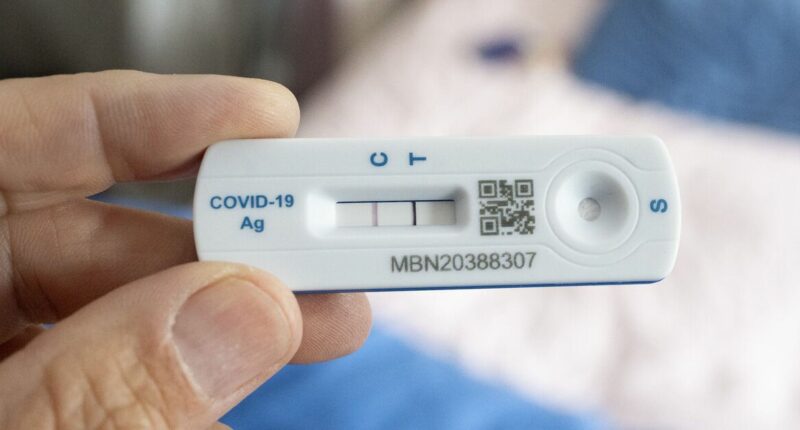Share this @internewscast.com
Covid-19 is once again making its presence felt, with the new Stratus variant bringing a host of fresh symptoms. However, if you’re unfortunate enough to contract the virus, one doctor has advised against using a particular type of medication.
GP Dr Sami, speaking from his professional experience, outlined a straightforward approach to treating coronavirus, but personally recommended avoiding certain medicines to expedite recovery. He recently divulged his top tips for combating the illness on TikTok, urging people to rest and steer clear of one specific medicine.
The doctor, who shares advice under the username ask.doctor.s, suggested several strategies to hasten recovery. This follows his previous advice to Brits to implement three changes as the virus continues to circulate.
For those suffering from Covid or a similar viral infection, he emphasised the importance of staying hydrated, as illness can cause the body to lose fluids more rapidly. Symptoms such as sweating, fever or a runny nose can all lead to fluid loss, so he stressed the importance of drinking plenty of water.
Dr Sami also praised honey for its effectiveness in soothing coughs and sore throats. In fact, he mentioned that some studies indicate it can alleviate nighttime cough symptoms as well.
While lemon and ginger won’t provide a cure, he noted they can significantly soothe a sore throat. However, when it comes to medication, there’s one pill he’d typically avoid.
Dr Sami said: “Paracetamol can help with fever and pain and, if paracetamol by itself isn’t working, you can add ibuprofen, which is really good for sinus pains and muscle aches. Last but not least is rest.
“Your immune system works much better when you’re resting, so don’t force yourself to go to work or the gym. It’s just going to prolong your illness.
“So, here’s what I don’t recommend, and the first one is pseudoephedrine, aka sudafed. Yes, it does help to unblock your nose, but the problem is it can increase your blood pressure, it can cause you to feel very jittery and it can keep you awake at night.
“The second one is antibiotics, and people always ask for antibiotics, even though they don’t work for viral. It’s much better to save antibiotics for when you actually need them.”
Whilst medical experts’ views may vary regarding Covid treatment, pseudoephedrine has the potential to elevate blood pressure levels. This occurs because the substance constricts blood vessels across the entire body.
Although this impact is typically minimal, it’s crucial for individuals to be aware if they suffer from high blood pressure or hypertension, as it could trigger a substantial rise and interfere with blood pressure medications’ effectiveness.
Decongestants may also leave certain people feeling restless or experiencing sleep disturbances. Should this occur, it’s advisable to cut back on caffeine intake whilst using them, or discontinue their use if symptoms deteriorate.
The NHS confirms it’s safe to combine ibuprofen with paracetamol or codeine. Nevertheless, you shouldn’t take ibuprofen alongside similar pain relief medications such as aspirin or naproxen without consulting a pharmacist or GP first.
The website explains: “Ibuprofen, aspirin and naproxen belong to the same group of medicines called non-steroidal anti-inflammatory drugs (NSAIDs). If you take them together, it may increase the chance of you getting side effects like stomach ache.
“NSAIDs are also used in medicines you can buy from pharmacies, such as cough and cold remedies. Before taking any other medicines, check the label to see if they contain aspirin, ibuprofen or other NSAIDs.”
Concerning Covid-19 treatment, the website notes: “Local NHS organisations are responsible for arranging Covid-19 treatments. The way you get treatment will depend on where you live.
“Your local integrated care board (ICB) or GP surgery can give you more information. If you think you’re in the highest risk group and need to access Covid-19 treatment, follow these steps to be considered for a referral.”
Should you require additional guidance regarding coronavirus symptoms or treatment options, contact your GP. You should always discuss any health worries with a medical professional.
















